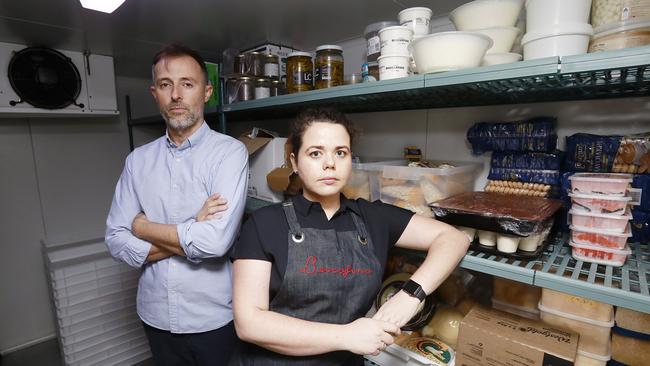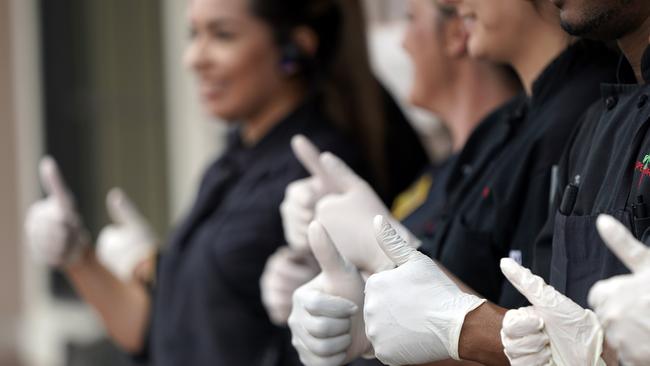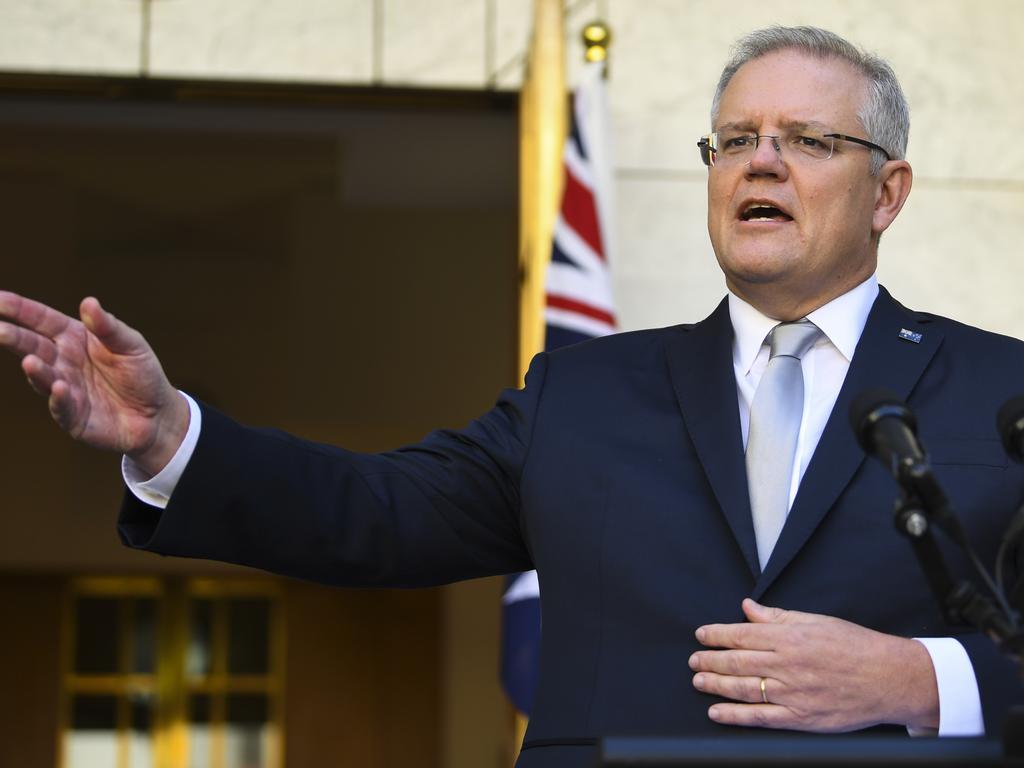
Part of the Australian sellout is caused by a race to the “safety” of the American dollar but another major contributor is that suddenly the world realises that we are not only on the front line in the commodity fall but our “award” wage structure will destroy vast swathes of the small business employment sector.
That will send unemployment into double figures, where it will stay for a long time because countless small enterprises are set for inevitable destruction. The PAYG tax relief helps but needs to be much greater and there are so many businesses that trying to save them via grants is simply not feasible.
We desperately need a deeper understanding in Canberra of what is required to stabilise our economy in the first instance. Then we can establish a sense of vision for the longer term.
I think my radical plan can help but I will let readers be the judge.
But if you think I am on the right track then alert your politicians. We can only hope and pray that last night’s collapse in the currency will be a wake up call to them.
The world believes we may not have gone far enough in our measures to prevent the virus, but even more importantly we simply do not understand why our business sector is more vulnerable than most other countries.
The world saw our first “rescue attempt”, where thought we could overcome the problem with higher depreciation allowances and giving more money to the elderly and welfare recipients, as not only crazy but as confirmation we had a government which was out of its depth.
The second package looks like being aimed at increased bank loans to small business and various grants, which will be better than the first one. But these measures will not address the problem.
So what should we be doing?
And so today I want to look at some of the short term measures we should be looking at and then, in a later commentary, how we are going to establish a longer term vision. I believe with a passion that it can be done.
The first step in overcoming any crisis is to try and establish a base and in this case it means stabilising the increase in the incidence of COVID-19. And part of that process will be to monitor very closely the conclusions of the Duke National University of Singapore which indicate that like SARS, the COVID-19 virus weakens over time.
Yesterday I met with cab drivers who are desperate because with the airport virtually shut there are few fares.
I took a risk and lunched in a normally crowded restaurant. Myself and my CEO dining partner were the only people in the restaurant. It will shut on Friday and, without knowledge of its financial situation, I fear that it will be like countless others and will go broke. All over Australia smaller and medium sized enterprise businesses are set to be decimated.
Tackling awards
Simple grants and bank loans might help in some areas but are not the answer. First we must tackle the awards and then, once we have stabilised the virus situation, we must ready to implement ways of running our economy while minimising the danger of the virus.
Our problem is compounded because other countries have greater flexible contact labour which they can shed so the business can survive. We employ people under awards which mean employees are entitled to money even if the business has no income. There are huge severance payments. That will destroy countless small businesses because they don’t have capital backing. The effect on the nation will be devastating. The award system was never designed to cater for a health scare of this magnitude.
Employees may get token sums of money but in the process they have lost their employer forever because the business is destroyed. This a major contributor to Australia being given the thumbs-down by the world.
Special benefits
Enterprises need the ability to suspend employees on no pay and have them move then quickly to a special category of unemployment benefits.
That way the businesses have a chance of being kept intact and the aid goes to those who need it-people with no income. There would need to be safeguards like preventing owners who sought this protection from accessing the funds in the business and if the enterprise failed all employee entitlements remained intact.
Landlords would be forced to be involved during this period of business curtailment or suspension. It is a revolutionary idea that is probably impossible to introduce but given a state of emergency, as Victoria has declared, just about anything is possible. Maybe Canberra should follow Victoria and declare a state of emergency to enable the preservation of vast swathes of the nation’s employment powerhouse.
Get business going
But we also can’t wait around until Christmas to restart business as the Prime Minister indicated to the horror of currency traders. Here is my plan
My first step would be ask the chairman of Melbourne based Ansell John Bevan (who is also BlueScope chairman) and his CEO Magnus Nicolin to get on a conference call with the Prime Minister, who should ask the company to produce an enormous quantity of gloves. And the government, having bought the gloves should issue them to vast numbers of enterprises around the nation, including the closed restaurant I dined at yesterday to help it reopen, albeit at a reduced scale.

The Prime Minister’s next conference should be between the CEO of Qantas Alan Joyce and his counterpart at Virgin, Paul Scurrah, to devise a safe means of allowing domestic airline travel. Almost certainly that will involve all passengers and staff and crew wearing gloves, much greater spaces between passengers in the plane and special cleaning after each flight.
Rather than having survival handouts to Qantas and Virgin, link the subsidies to the passengers they can attract via safe domestic air travel.
A similar set of procedures are needed for our restaurants, our cabs, tourist destinations and indeed all other businesses that are being ravaged by the current emergency. A lot of restaurants can survive with glass panelling at tables or basing their business on Uber eats and similar services. There will be other ideas.
Faster payments
Given the depth and urgency of the crisis we need to ask all large companies to announce that they will do pay all suppliers in 20 days of invoice.
Later legislation will be important but right now we need to move quickly. Similarly we should take up Coke’s plan to give credit to customers to keep them alive.
In this emergency we can ask companies to get themselves classified on a list as good citizens. Not all will help but many will and in this sea of crisis we can point the finger at the bad corporate citizens.
As well as gloves we need a massive increase in testing capacity so people can determine quickly and easily whether they have been affected – the current testing equipment orders are way too small. This is a key to bringing down the death rate.
I am on the board of a private school and we have told our parents that we will shut but only for 24 hours and during that time we will fine tune our techniques for remote teaching. After that 24 hours there will be absolutely no shut down at the school, merely a transition to online learning should there be an infection at the school or a government order. We are adapting our services to the crisis and that’s what businesses around the land must do, sometimes with government help.
We need to go back to the 1930s to encounter the last time we had a crisis of similar magnitude and study the inspiration that President Roosevelt gave the American nation. And that is the subject of my commentary next week.







Australia is quite rightly being hammered by overseas investors as they dump our currency, our bonds and our shares.